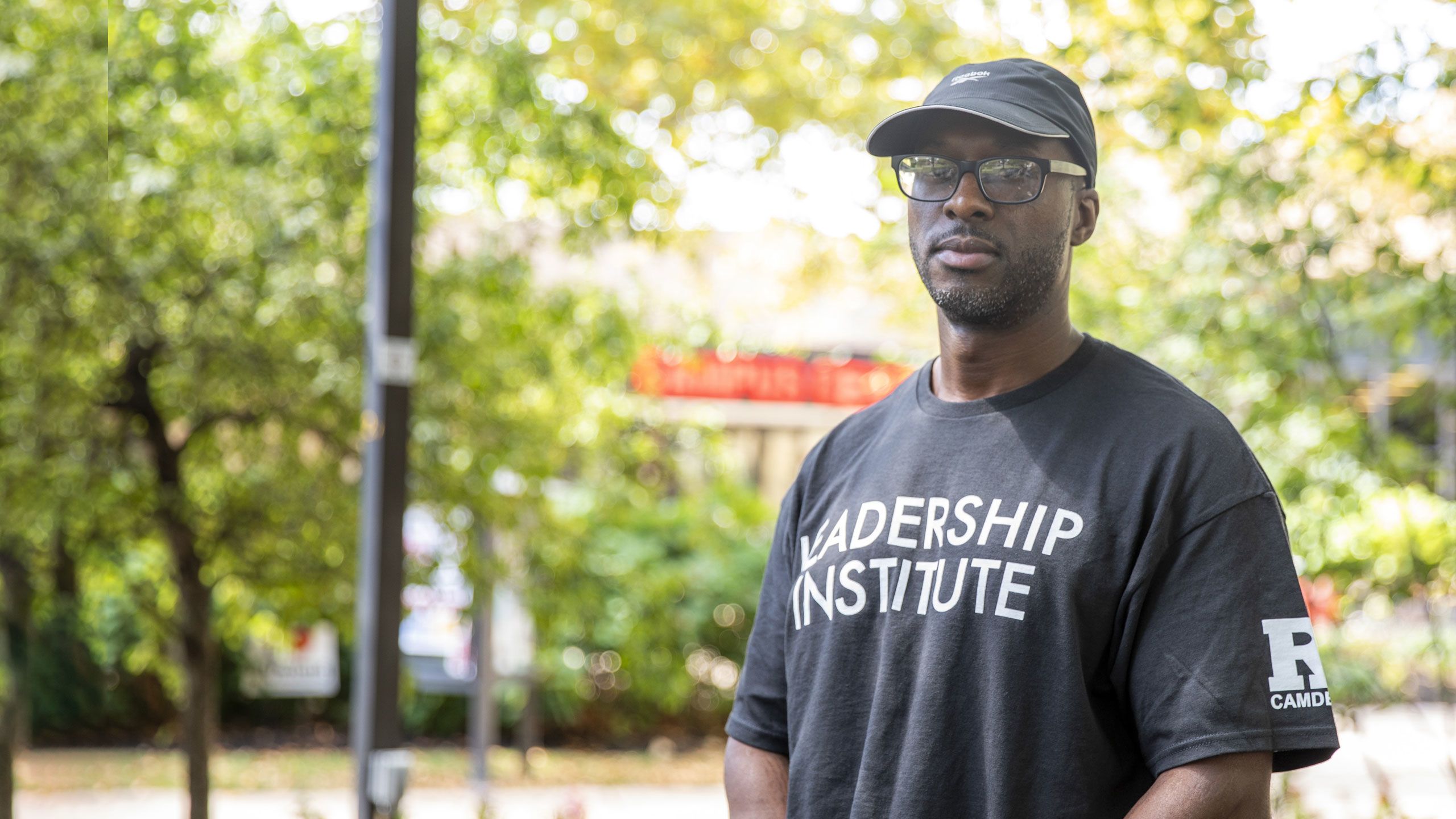SHINING BRIGHT
Formerly incarcerated student conducts laser research at Princeton.

“Loss is gonna happen, period, in life, and you're going to lose. But it's what you do after you lose that matters.”
— Wali Palmer
Computer science major Wali Palmer recently completed a research internship at one of the nation’s Ivy League institutions. It has been a journey for the junior, who took his first courses at Rutgers University in Camden “behind the wall.”
While incarcerated at a state prison on multiple charges, Palmer applied to take college courses through the NJ Step Program. NJSTEP is a partnership between the State of New Jersey Department of Corrections and New Jersey State Parole Board and higher education institutions that offers an avenue to higher learning in prison and support with the transition to college post-release. Admission to NJSTEP is a multi-step process. With entry tests, an essay, and a screening, the selection process for Palmer to enter the NJSTEP program took three years, after which Palmer earned his associate degree in liberal arts before enrolling in classes at Rutgers–Camden.
He wanted to learn more about electrical engineering and chose computer science as the closest major to his passion last fall. That was the easy part. Palmer was living under restrictions in a halfway house, and a compounding of issues led him to withdraw from classes in what he recalled was a “disastrous” first semester. By the following spring, things started to fall into place. “The whole experience of being in college and doing things that I never imagined I'd be doing, it's liberating, because it's opened new doors. Everybody should have an opportunity to open new doors,” Palmer said.
That semester, he learned of an opportunity at Princeton University through its Prison Teaching Initiative program, which pairs formerly incarcerated students with faculty to provide research opportunities in STEM fields. The nine-week summer internship would have Palmer commuting more than two hours one way each day, taking three modes of public transportation to intern at Princeton’s School of Engineering.
It was all worth it for Palmer, who worked alongside Claire Gmachl, Eugene Higgins Professor of Electrical Engineering, and her research team. He learned to design for a kind of semiconductor laser called a quantum cascade laser using software the team had developed in their lab. Gmachl’s team is working to optimize these lasers, where they can be used in a range of applications, from detecting illnesses to counterintelligence.
That “you could use lasers to be able to do those things was next-level stuff. That was revelatory for me,” Palmer said.
Having never been exposed to this material before, Palmer took his best educated guess on the material compositions, trying to emulate the tutorial the team gave him as much as possible.


“Every day brings about a new opportunity and journey. I didn't plan to take computer science, I didn't plan to even be going to the Princeton internship. It’s just an opportunity that presented itself.”
— Wali Palmer
“I was thinking that with just my intuition, it would be somewhat successful. But the laser that I initially designed was no good, it was not a good laser,” he said. After reviewing Gmachl’s research and some trial and error, he landed on what he described as a “good, really actionable laser.”
Palmer was awe-inspired by both the physical spaces and the community he discovered through his internship. “People who didn't know me, didn't know why I was there or what I was there for, didn't look at me like ‘Whatcha doing here,’ you know? The place itself, the university, was a wonderful experience,” he said.
His future may include graduate school, but Palmer hasn’t stopped to think about that just yet. One thing that has crossed his mind is connecting more youth with computers, especially with computer programming. He would love to offer community programs that teach kids how to code. In the meantime, he is eager to move forward in his major and “gain a greater understanding of computers. It goes hand in hand with that in everything, computers are the future,” he said. “So that's why I don’t intend to go anywhere.”


Creative Design: Beatris Santos
Photography: Ron Downes Jr.
